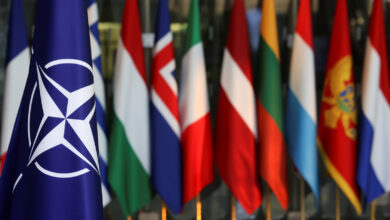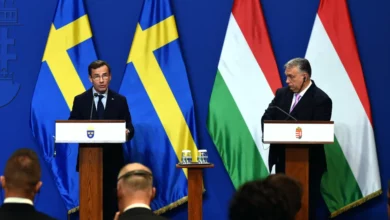
Chancellor Angela Merkel said on Friday that Germany had accepted a request from Turkey to seek prosecution of a German comedian who read out a sexually crude poem about Turkish President Tayyip Erdogan on German television.
The request from Ankara had put Merkel in a tricky position because she has spearheaded the effort to secure a deal between the European Union and Turkey that is helping to reduce the number of migrants arriving in Europe and Germany.
Critics have accused her of getting too cozy with Turkey and the decision on Friday to pass the case to a prosecutor could fuel more accusations that she is compromising on values like the freedom of expression to secure Turkey's continued cooperation on the refugees.
Under a section of Germany's criminal code, the government needed to authorize prosecutors to pursue a case against the comedian, Jan Boehmermann, who may have broken a German law by insulting a foreign leader.
On March 31, the satirist recited a poem on public broadcaster ZDF that mocked Erdogan with crude references to bestiality.
"There were different opinions between the coalition partners – the conservatives and the SPD (Social Democrats)," Merkel told reporters at the Chancellery in Berlin.
"The outcome is that the German government will give the authorization in the current case," she added, stressing that this was not a decision about the merits of the prosecution's case against Boehmermann.
Thomas Oppermann, a senior SPD member, criticized the government's decision, writing on Twitter: "Prosecution of satire due to 'lese majesty' does not fit with modern democracy."
In a reflection of the difficult position the case had put Berlin in, Merkel said the German government planned to remove the section of the criminal code that requires it to grant permission for prosecution in such cases.
Merkel said the government would present a draft law to remove the paragraph which should be passed in the current legislative period and come into force from 2018.
She justified the decision by pointing to the close and friendly relationship that Germany shares with Turkey, referring to the 3 million people with Turkish roots that live in Germany, their economic ties and cooperation as members of the North Atlantic Treaty Organisation (NATO).
Merkel also took the opportunity to press Turkey to uphold the values of freedom of expression, the press and art.




